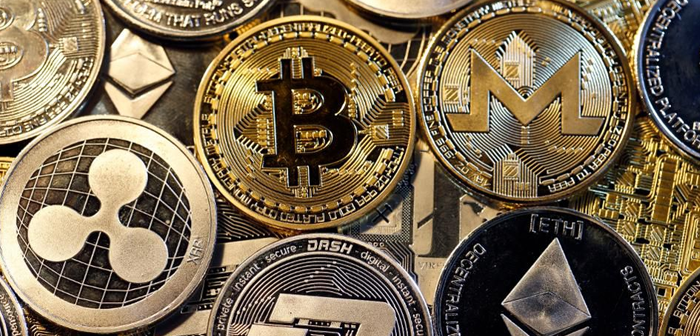The African crypto revolution is in full swing, and blockchain technology is playing a pivotal role in transforming financial systems across the continent. Africa has one of the highest unbanked populations in the world, with millions of people without access to traditional banking services. However, cryptocurrency and blockchain are offering a game-changing solution to this problem.
1. Financial Inclusion Challenges in Africa
Africa is home to about 1.4 billion people, with over 60% of the population still lacking access to formal financial services. Several factors contribute to this:
-
Lack of Banking Infrastructure: In many rural and remote areas, banks are scarce, and traditional financial institutions are not accessible.
-
High Transaction Costs: In countries like Nigeria, Kenya, and South Africa, the costs associated with transferring money or accessing banking services are prohibitively high.
-
Economic Instability: Many African nations face economic volatility, leading to currency devaluation, inflation, and lack of trust in traditional banking systems.
Blockchain and cryptocurrency offer a solution to these issues, providing an efficient, secure, and low-cost alternative to traditional banking.
How Blockchain and Crypto are Driving Financial Inclusion in Africa
1. Mobile Money and Crypto Integration
Mobile money platforms like M-Pesa in Kenya have been immensely popular in Africa, providing an accessible and affordable way for people to transfer money, pay for goods, and receive payments. However, crypto integration with mobile money is now taking this to the next level.
-
Bitcoin and Stablecoins for Mobile Payments: Mobile money users can now use Bitcoin, stablecoins (such as USDT), and other cryptocurrencies to make payments or store value.
-
Cross-Border Payments: Cryptocurrency enables faster and cheaper cross-border payments, making it easier for Africans living abroad to send remittances back home.
-
Wallets for the Unbanked: Cryptocurrency wallets are accessible via smartphones, allowing people in rural areas who don’t have a bank account to store, send, and receive digital currency without needing a physical bank branch.
As of 2025, platforms like BitPesa and Luno are enabling seamless crypto integration into mobile payment systems, allowing more Africans to participate in the global economy.
2. Decentralized Finance (DeFi)
Decentralized Finance (DeFi) is another area where blockchain is contributing to financial inclusion in Africa. DeFi is a set of financial services built on blockchain technology that allows users to access services like lending, borrowing, trading, and investing without intermediaries like banks or traditional financial institutions.
-
Peer-to-Peer Transactions: DeFi platforms are empowering Africans to lend and borrow cryptocurrency directly from one another, without needing approval from a bank. This is especially useful in regions where access to credit is limited.
-
Earning Yield on Crypto: African users can earn interest by participating in staking and yield farming on DeFi platforms, providing an opportunity for investment and wealth growth that wasn’t previously accessible.
Real-World Examples of Crypto Empowering Financial Inclusion in Africa
1. Nigeria: eNaira
Nigeria became the first African country to launch a Central Bank Digital Currency (CBDC), the eNaira, in 2021. This government-backed digital currency is designed to provide easier access to digital payments and financial services for Nigeria’s unbanked population.
-
Financial Inclusion Goals: The eNaira aims to include over 80 million unbanked Nigerians in the digital economy by 2025.
-
Government Payments: The Nigerian government has begun using the eNaira for benefits, stipends, and grants, further enhancing financial access for disadvantaged groups.
The eNaira is an example of how government-backed crypto can work alongside decentralized crypto to drive greater financial inclusion in Africa.
2. Kenya: M-Pesa and Bitcoin
Kenya is known for its pioneering mobile money platform, M-Pesa, which has been revolutionary in giving unbanked and underbanked populations access to financial services. Now, Bitcoin is becoming a part of this ecosystem, with companies like BitPesa allowing users to send and receive payments in crypto.
-
M-Pesa and Bitcoin Integration: Users can convert Bitcoin into Kenyan Shillings and use it on the M-Pesa platform, making it easier for people to access digital finance tools.
-
Access to Global Financial Systems: With cryptocurrency, Kenyans are able to engage with global financial markets and send money internationally at lower costs compared to traditional banking methods.
3. South Africa: Luno and Bitcoin
South Africa, one of the more advanced African nations in terms of crypto adoption, has seen a growing number of people use Bitcoin as a store of value and means of exchange. Companies like Luno have facilitated easy access to Bitcoin, which is now used by over 1.7 million South Africans.
-
Bitcoin as a Hedge Against Inflation: With the South African rand experiencing fluctuations in value, many citizens have turned to Bitcoin to protect their savings and hedge against inflation.
-
Financial Education and Awareness: Platforms like Luno are also focusing on financial education, teaching South Africans about cryptocurrency, blockchain, and how to use digital currencies to improve their financial lives.
The Impact of Blockchain on Economic Empowerment
1. Entrepreneurship and Job Creation
Blockchain and cryptocurrency are helping to create new job opportunities and promote entrepreneurship. From blockchain developers to crypto traders and DeFi platform creators, the industry is fueling a new wave of digital entrepreneurship.
-
Cryptocurrency Exchanges and Startups: Companies like Binance Africa and Coinbase are setting up exchanges and offices across the continent, providing employment and boosting the local economies.
-
Blockchain as a Service (BaaS): African tech startups are using blockchain to offer solutions in supply chain management, agriculture, and finance, creating new business opportunities and improving efficiency.
2. Transparency and Anti-Corruption
Blockchain’s transparency and immutability are helping African countries to combat corruption and improve the transparency of financial systems. Governments and organizations are beginning to explore blockchain solutions to create transparent financial records that are open to scrutiny, making it harder for funds to be misappropriated.
-
Government Audits: Countries like Ghana are using blockchain to track government spending and ensure that aid is delivered directly to the people who need it.
5. The Road Ahead: What’s Next for Blockchain and Crypto in Africa?
As we look towards 2025, the future of crypto and blockchain technology in Africa is incredibly promising. The African crypto revolution will continue to gain momentum as:
-
More governments create crypto-friendly regulations, allowing businesses and individuals to safely engage with digital currencies.
-
Blockchain solutions expand beyond finance, helping with healthcare, education, supply chain management, and more.
-
The adoption of stablecoins and digital currencies like CBDCs (Central Bank Digital Currencies) becomes more widespread, offering financial solutions to underserved populations.
Conclusion
Blockchain technology and cryptocurrency are empowering millions of people across Africa, driving financial inclusion and offering new opportunities for economic growth and entrepreneurship. As mobile money platforms integrate crypto, and DeFi continues to grow, Africa is at the forefront of the global crypto revolution.
By leveraging blockchain and cryptocurrency, Africa is on the path to overcoming financial barriers and creating an inclusive, digital economy that can serve all its citizens, regardless of their banking access.
Blockchain and cryptocurrency are not just technological innovations—they are tools for empowering people in Africa. With millions of unbanked individuals gaining access to financial services, the continent is witnessing a true financial revolution that promises to change the lives of millions.
Do you think blockchain and cryptocurrency will reshape financial systems across Africa? Share your thoughts in the comments below!







